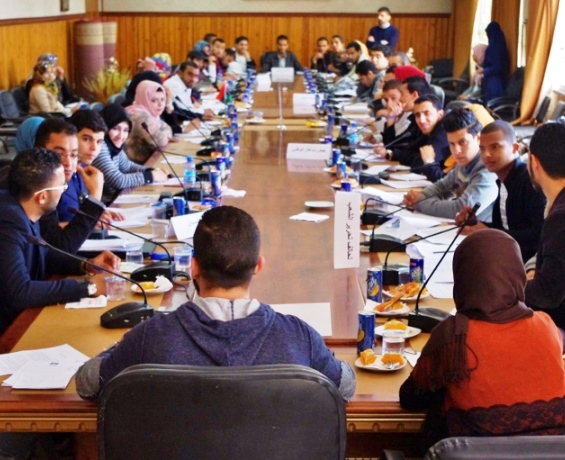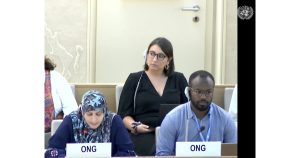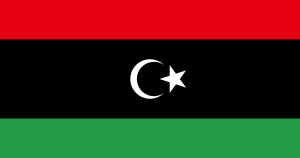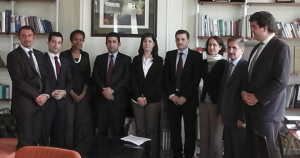Tripoli, 9 February 2014
No Peace Without Justice (NPWJ) and the University of Tripoli Students Union organised a series of meetings with the students and professors of the Faculty of Law of the University of Tripoli in the framework of its program on Transitional Justice (TJ) in Libya. The aim of the Colloquiums was to engage the students in discussions on issues that are relevant in a transitioning Libya, to encourage them to participate in this crucial moment and to raise awareness about different transitional justice experiences around the world. The 50 participants engaged in productive and vibrant discussions on various aspects of Transitional Justice over each of the four days over which the colloquiums were held.
The first Colloquium focused on possible TJ mechanisms and their application in Libya. Special attention was given to the recently approved TJ law and the expectations of Libya’s youth.
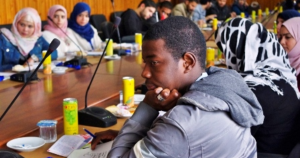
During the second Colloquium, discussion focused on the serious humanitarian situation of Internally Displaced People (IDPs) in Libya. Representatives of the Tawergha community described the conditions in which they are currently living in several camps between Benghazi and Tripoli. After being targeted in retaliation of alleged crimes committed against their neighbours from Misurata during the conflict, Tawerghans suffered from massive human rights violations, including systematically destruction of homes and infrastructure, illegal arrests, use of torture, and arbitrary killings. They are still unable to return to their homes.
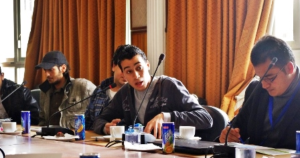
The third Colloquium focused on Transitional Justice and the Constitutional process. Libyan and Tunisian experts introduced the achievements of the Tunisian Constitution that, adopted earlier in January, could represent a milestone not just for Tunisia, but also a positive and successful example for the entire Arab region. Tunisian youth, along with women’s groups and civil society organizations, played a crucial role in the constitutional process, which the Libyan students considered a useful model to replicate in Libya.
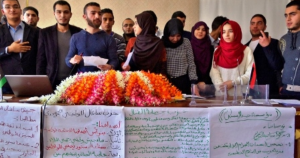
The series of colloquiums concluded with a role-play exercise on the role of the youth in the transitional process. Participants divided into groups representing different stakeholders in a fictional post-conflict country and actively engaged in a discussion that led to the agreement of all parties on the adoption of a transitional justice strategy that could be implemented in practice. The aim of the role play was to encourage participants to consider different points of view in a post‑conflict society and to experience both the challenges and benefits of transitional justice mechanisms.
At the end of the series of Colloquiums, students stressed the necessity to promote other similar events to discuss these issues further.
NPWJ in Libya
NPWJ has been working on the Libyan transition since early 2011, in the framework of its project to support Libya’s democratic transition through justice and accountability. As the country embarks on legislative reforms, the Libyan authorities can break with the legacy of impunity and abuses that typified Gaddafi’s rule with a new respect for the rule of law and a commitment to restoring justice and dignity to victims. Doing so requires not only the investigation and prosecution of the crimes and violence perpetrated during the revolution, but also efforts to confront a history of oppression and human rights abuses that dates back decades under the rule of the former regime.
For further information on the activities of NPWJ in Libya please contact Stefano Moschini, Libya Program Coordinator, at smoschini@npwj.org or +218917450375.

